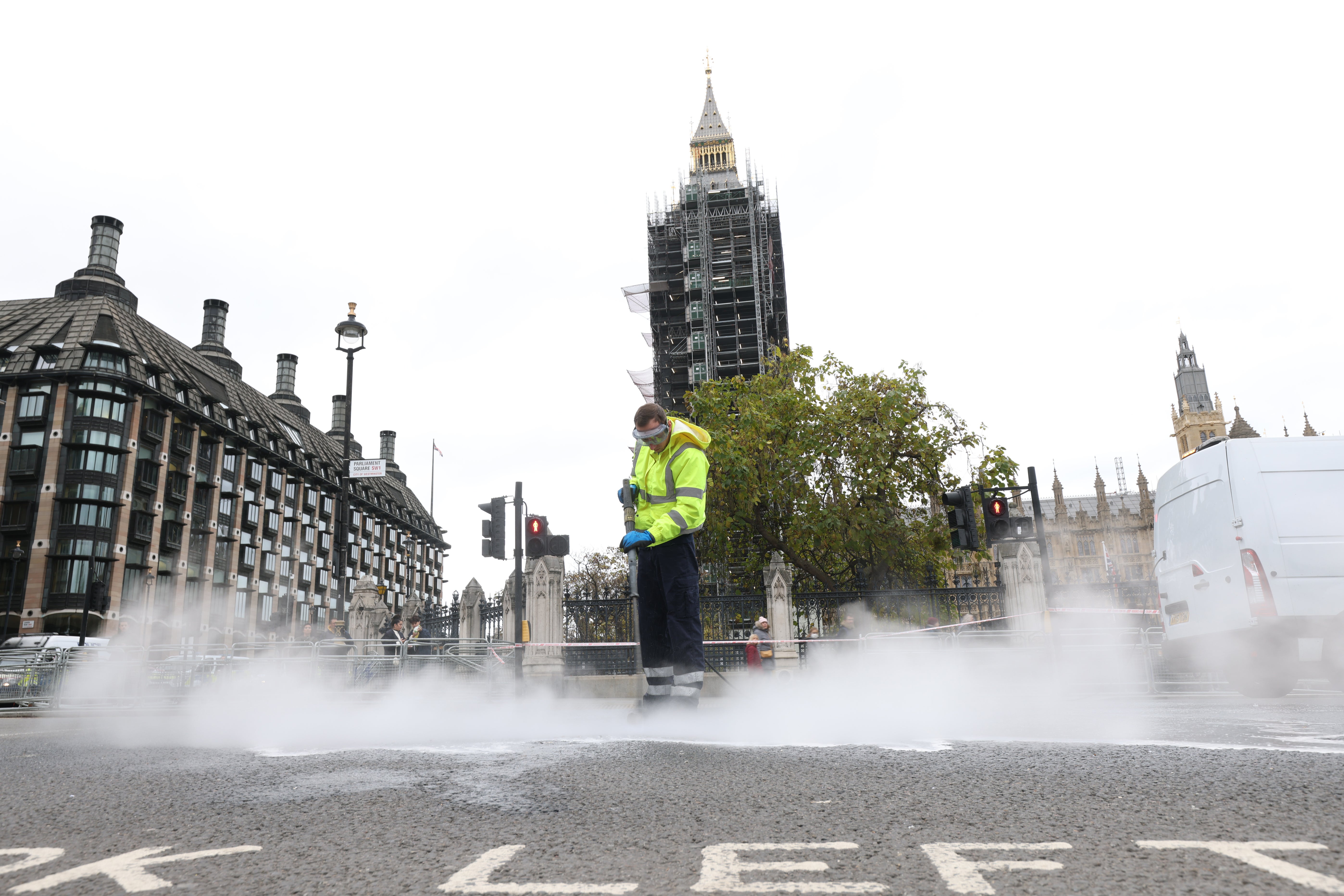‘Labour want people supergluing themselves to motorways,’ says Rees-Mogg
The Commons Leader made his claims following the Police Bill defeat.

Your support helps us to tell the story
From reproductive rights to climate change to Big Tech, The Independent is on the ground when the story is developing. Whether it's investigating the financials of Elon Musk's pro-Trump PAC or producing our latest documentary, 'The A Word', which shines a light on the American women fighting for reproductive rights, we know how important it is to parse out the facts from the messaging.
At such a critical moment in US history, we need reporters on the ground. Your donation allows us to keep sending journalists to speak to both sides of the story.
The Independent is trusted by Americans across the entire political spectrum. And unlike many other quality news outlets, we choose not to lock Americans out of our reporting and analysis with paywalls. We believe quality journalism should be available to everyone, paid for by those who can afford it.
Your support makes all the difference.Labour are “advertisers for superglue” and “want people gluing themselves to motorways”, Jacob Rees-Mogg has said.
The claim came as the Commons Leader faced accusations that Labour and rebel Conservatives in the House of Lords had overturned Government plans to add new powers to the Police Crime, Sentencing and Courts Bill.
The Bill has proved controversial because of sweeping reforms which opponents say would curb the right to protest.
It was torn apart by peers in a series of votes on Monday night, with 14 amendments proposed by the Government being voted down.
In the Commons on Thursday, Mr Rees-Mogg said: “Then we get to the socialists’ desire for superglue.
“Do you know?
“They want sales of superglue to go up, they are the advertisers for superglue or araldite.
“They want people gluing themselves to motorways, blocking up our major arteries because they got their Labour peers, their socialists peers in their fine ermine-trimmed robes, to vote to obstruct the highways.
“That is what we get with socialism: control, interference, bossiness and fear, and with Conservatives you get a growing economy.”
Shadow Commons leader Thangam Debbonaire had accused the Government of trying to “avoid scrutiny” by amending the Bill in the Lords.
She added: “It didn’t work because the Labour peers voted down those Government last-minute amendments to the Police, Crime, Sentencing and Courts Bill, and I have to say in a foreshadowing of what is happening here, it was striking how many Conservative peers also did not support the Government.”
She called for details of when the Bill would be brought back to the Commons and said Labour had backed “strong action against dangerous protests, stronger actions against protests on motorways”.
New powers turned down by the unelected chamber included allowing police officers to stop and search anyone at a protest “without suspicion” for items used to prevent a person being moved, known as “locking-on”.
A move that would allow individuals with a history of causing serious disruption to be banned by the courts from attending certain protests was also dismissed, along with a proposal to make it an offence for a person to disrupt the operation of key national infrastructure, including airports and newspaper printers.
In a separate defeat, peers backed restricting the imposition of tougher sentences for blocking a highway to major routes and motorways rather than all roads.
The mauling of the Tory administration’s plans set the stage for a protracted parliamentary tussle known as ping-pong, where legislation passes between the Lords and the Commons until agreement can be reached.
Peers were strongly critical of not only the measures, but also the way they had been introduced at such a late stage of the passage of the Bill, after it had already gone through the elected House.
Earlier the Lords had also defeated other contentious curbs on demonstrations proposed in the legislation, including powers to impose conditions on protests judged to be too noisy.